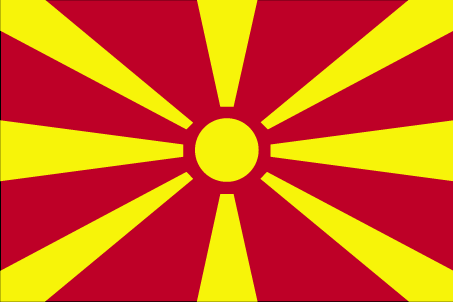
Macedonia gained its independence peacefully from Yugoslavia in 1991. Greece's objection to the new state's use of what it considered a Hellenic name and symbols delayed international recognition, which occurred under the provisional designation of "the Former Yugoslav Republic of Macedonia." In 1995, Greece lifted a 20-month trade embargo and the two countries agreed to normalize relations, but the issue of the name remained unresolved and negotiations for a solution are ongoing. Since 2004, the US and over 130 other nations have recognized Macedonia by its constitutional name, Republic of Macedonia. Ethnic Albanian grievances over perceived political and economic inequities escalated into an insurgency in 2001 that eventually led to the internationally brokered Ohrid Framework Agreement, which ended the fighting and established guidelines for constitutional amendments and the creation of new laws that enhanced the rights of minorities. Although Macedonia became an EU candidate in 2005, the country still faces challenges, including fully implementing the Framework Agreement, improving relations with Bulgaria, carrying out democratic reforms, and stimulating economic growth and development. Macedonia's membership in NATO was blocked by Greece at the Alliance's Summit of Bucharest in 2008.
low-grade iron ore, copper, lead, zinc, chromite, manganese, nickel, tungsten, gold, silver, asbestos, gypsum, timber, arable land
arable land: 16.1%
permanent crops: 1.36%
other: 82.54% (2011)
2,091,719 (July 2014 est.)
country comparison to the world: 147
Macedonian 64.2%, Albanian 25.2%, Turkish 3.9%, Roma (Gypsy) 2.7%, Serb 1.8%, other 2.2% (2002 census)
Macedonian Orthodox 64.7%, Muslim 33.3%, other Christian 0.37%, other and unspecified 1.63% (2002 census)
Macedonian (official) 66.5%, Albanian (official) 25.1%, Turkish 3.5%, Roma 1.9%, Serbian 1.2%, other 1.8% (2002 census)
definition: age 15 and over can read and write
total population: 97.4%
male: 98.7%
female: 96% (2011 est.)
Skopje
parliamentary democracy
8 September 1991 (referendum by registered voters endorsed independence from Yugoslavia)
Independence Day, 8 September (1991); also known as National Day